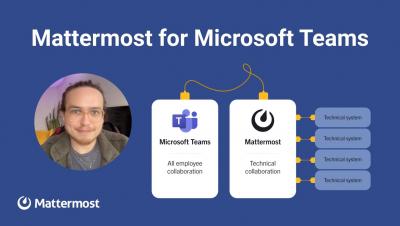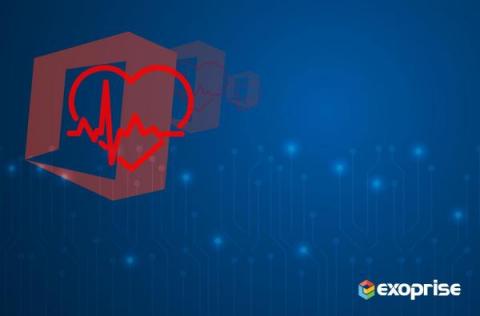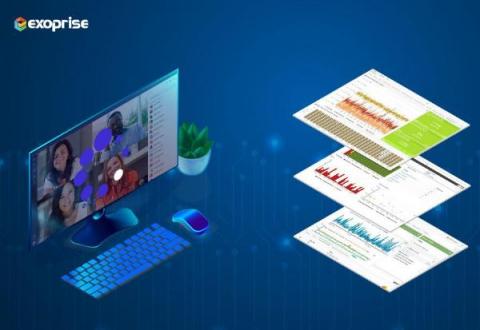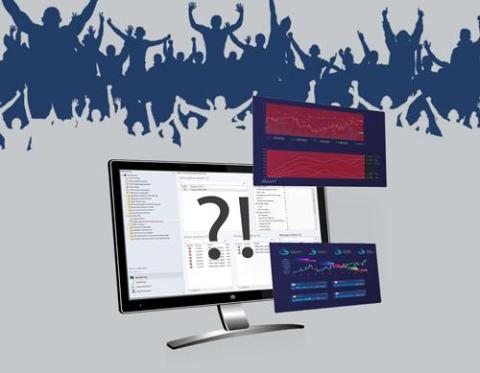Teams | Collaboration | Customer Service | Project Management
Microsoft 365
How ITOps Uses Real-Time Monitoring for Easy Fixes
Here's a scenario. All your enterprise apps are running fine, as you expected. Maybe your team wasn't impacted by the Microsoft 365 outage a couple of weeks ago. Good for you! But don't let past application performance predict current performance. Instead, choose real-time monitoring to efficiently manage your network and proactively resolve app health issues at any time. That way, the IT operations (ITOps) team has visibility into your entire digital estate and pinpoint services unavailable to end-users.
4 Key IT Operations Practices for Better Management
Here we go again. If 2022 wasn’t enough, there are new challenges in 2023 staring right at information technology leaders. As interest rates rise and consumer demand slows, companies plan to cut costs and do more with less. But what does all this mean for you? Amid this uncertainty, the IT operations department must adapt well to these changes. Because if they don’t, the business they support will be disadvantaged.
Microsoft Outlook Outage on 6th February EX512238
Unable to send, receive, or search email through Exchange Online? Microsoft Outlook suffered an outage for several hours last night, disrupting North America and worldwide email services.
CRN Recognizes Exoprise as a Cloud 100 Company for 2023
How to Choose the Right IT Ops Metrics
Traditionally, we consider IT to be managing and monitoring on-premises network infrastructure, including hardware and software. However, the reality is that most enterprises have accepted and migrated much of their infrastructure to the cloud already. They recognize the benefits of the cloud and that it is here for the long haul. According to the latest study from Deloitte, 90% of organizations have been using cloud services for the last three years, and 79% are hosting workloads with multiple cloud providers. In addition, adopting cloud computing platforms has accelerated significantly in the remote work era.
Microsoft Outage on 25th Jan 2023 MO502273
Microsoft had its corporate earnings call yesterday and posted weaker guidance. But guess what? Several hours later, the tech giant was hit by a networking outage that took down Azure and other services like Teams and Outlook, affecting millions of users globally.
4 Ways DEM Improves the Digital Employee Experience
If you have been following the news over the last few months, you will agree that the buzzwords for this year are – inflation and recession. Yet, even in these turbulent times, delivering an excellent digital employee experience (DEX) remains an essential aspect of IT. As organizations continue to add various collaboration, communication, and end-user technologies to the mix, new problems will surface.
MS 365 ban from German schools sparks implications for public sector organizations in the whole EU
After a 2 year-long investigation, the German Government’s Data Protection Office (Datenschutzkonferenz or DSK) has concluded that Microsoft 365 is not GDPR compliant and banned its use in schools all over Germany. This news further confirms a Europe-wide trend of government-related institutions moving away from US-based tech providers.
Microsoft SCOM for Office 365 Monitoring? There Is a Better Alternative.
Gartner predicts that spending on public cloud services will rise to 21% in 2023. Most organizations today support fully remote operations and use SaaS services from the cloud. But is your Microsoft Systems Center Operations Manager (SCOM) tool suitable for monitoring mission-critical services like Microsoft 365? Don't get us wrong - SCOM is a comprehensive monitoring tool for servers, infrastructure, and apps such as Exchange and SQL. However, the recently released Microsoft SCOM Management Pack for monitoring Microsoft 365 lacks clout.










